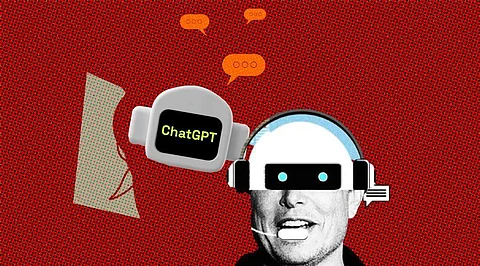

By the time you have finished reading this article, OpenAI's stunning new ChatGPT service will have drowned you with information. The "best chatbot ever constructed" gained a million users in the first week of its debut, and it seems that each and every one of them had something to say about it. I'll focus on one unique ChatGPT feature instead of contributing to the enthusiastic acclaim, surprised reactions, and even apocalypse scenarios: Will it dethrone Google and replace "search"? It seems like a lot of captivated users believe this. While @mertbio adamantly claims that "OpenAI just destroyed Google," @jdkelly announces that "Google is gone." Some rumors claim that Google even declared a "Code Red" on this.
OpenAI, which makes use of Microsoft's Azure platform, has a sizable investment from the business that competes with Google, and Microsoft. Let's pause for a moment and define ChatGPT before discussing whether Sundar Pichai should be suffering from sleep deprivation over it.
The chatbot is run using OpenAI's GPT3 huge language model (LLM). GPT4 will include at least 100 trillion neural network parameters with 175 billion that were trained on a big body of text! A language model uses machine learning to predict what the next word in a phrase should be based on the previous installment or prompt. LLMs are the "most potent autocomplete systems in the world." They devour texts, data, and dialogue samples with a ravenous appetite, learning statistical patterns to order them in a sensible order. They talk to each other in this manner. However, the majority of them aren't built for "truth," so they can't tell if what they're saying is true. According to one expert, the system "strategizes to be credible instead of true."
Furthermore, neither search engines nor their content is claimed to be understood. Their job is to search the internet and, using an algorithm, pick the search results that seem to be most relevant to you, "probably," given that a pure search engine would execute that operation.
However, in addition to links that have been purchased, sponsored, or manufactured to appear first, the economic models that drive search also include search engine marketing (SEM) and search engine optimization (SEO). Although ChatGPT may theoretically be used for search, this version was not made that way. To begin with, because it does not crawl the internet, it is unable to find the information you need online and tell you where it originated from. Second, the body of literature—its knowledge base—on which it was trained expired in 2021. As a result, we could still think that Queen Elizabeth II rules over England or that Russia has never attacked another country. Gary Marcus recently mocked the issue in a tweet, writing, "All you need to do (to make ChatGPT operate) is connect it up to a search engine!" However, it is not a given that ChatGPT won't ever do so. A possible update, tentatively named WebGPT, has been mentioned in public by OpenAI co-founder John Schulman.
Now, Pichai and his team might sit up in anticipation of a ChatGPT-like frontend that operates on the potent GPT4, is supported by Microsoft's cloud, and is possibly connected to its search engine Bing. This is not to imply that Google is not working on a similar product; Google Brain is a top-tier AI team, and Google owns DeepMind, perhaps the most powerful deep-learning engine available today. In essence, LaMDA, which Google announced last year, can do the same thing as ChatGPT: speak with people about anything and everything. In fact, according to Google developer Blake Lemoine, it was so realistic that it could feel or perceive things. Google also announced that it would provide LaMDA support to its voice assistant, Gmail, Docs, and Drive services.
